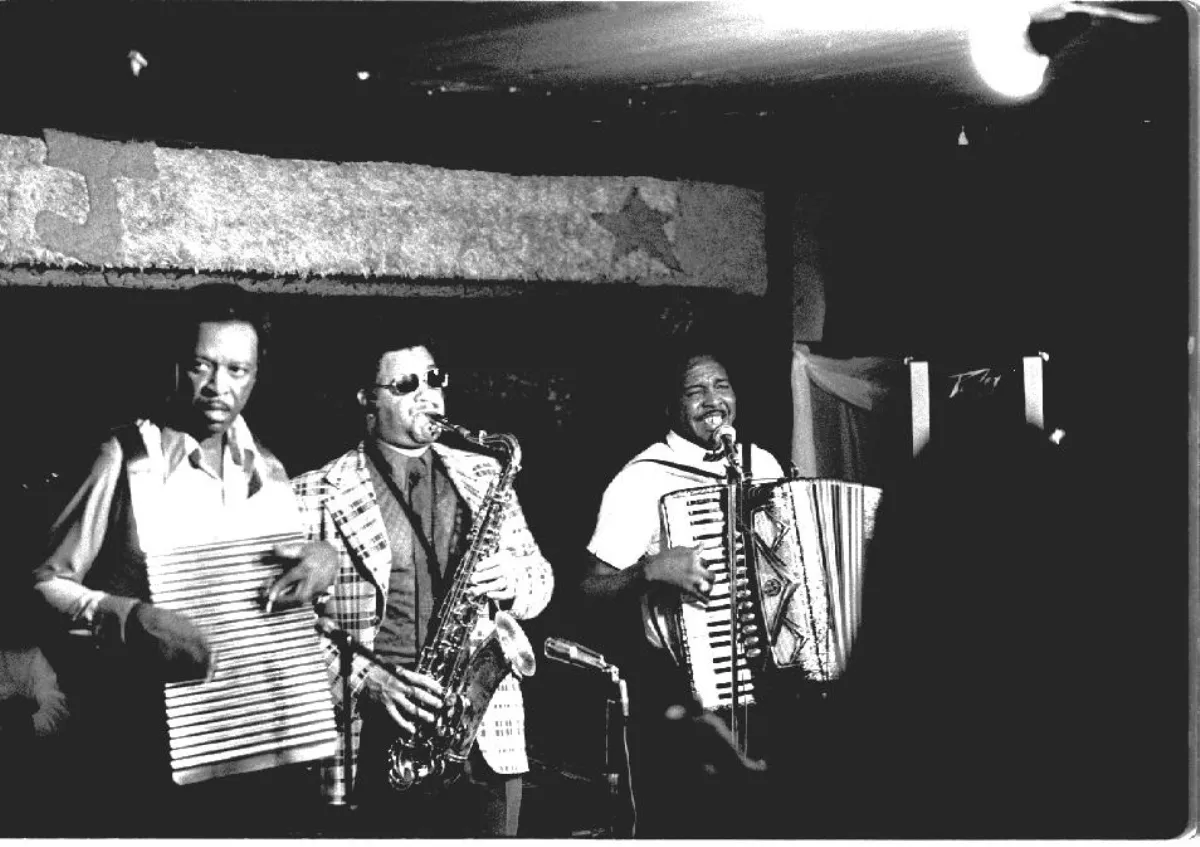 1.
1. Clifton Chenier was exposed to music growing up, as he accompanied his father, Joseph Clifton Chenier, a farmer and player of the single-row diatonic accordion, to dances.

 1.
1. Clifton Chenier was exposed to music growing up, as he accompanied his father, Joseph Clifton Chenier, a farmer and player of the single-row diatonic accordion, to dances.
Clifton Chenier began his recording career in 1954, when he signed with Elko Records and released Cliston Blues [sic], a regional success.
Imperial Records picked up and reissued the single and Clifton Chenier cut four more sides for their "Post" subsidiary.
Clifton Chenier toured in the early days with Clarence Garlow, billed as the Two Crazy Frenchmen.
Clifton Chenier was signed with Chess Records in Chicago, followed by the Arhoolie label in the early 1960s.
Clifton Chenier was the first act to play at Antone's, a blues club on Sixth Street in Austin, Texas.
Clifton Chenier followed Queen Ida as the second Louisiana Creole to win a Grammy.
Clifton Chenier is credited with redesigning the wood and crimped tin washboard into the vest frottoir, an instrument that easily hung from the shoulders.
Clifton Chenier sketched his idea for a metalworker in Port Arthur named Willie Landry, who made the first frottoir.
Clifton Chenier found popularity for his ability to manipulate the distinctive sound of the frottoir by rubbing several bottle openers along its ridges.
Clifton Chenier suffered from diabetes, which eventually forced him to have a foot amputated and required dialysis because of associated kidney problems.
Clifton Chenier died of diabetes-related kidney disease in December 1987 in Lafayette, Louisiana.
Clifton Chenier's funeral took place at Immaculate Heart of Mary Church in Lafayette.
John Mellencamp refers to "Clifton" in his song "Lafayette", about the Louisiana city where Chenier often performed, on Mellencamp's 2003 album Trouble No More.
Clifton Chenier is the subject of Les Blank's 1973 documentary film Hot Pepper.
Clifton Chenier received a 1984 National Heritage Fellowship from the National Endowment for the Arts, the US government's highest honor in folk and traditional arts.
Clifton Chenier was inducted posthumously into the Blues Hall of Fame in 1989, and the Louisiana Music Hall of Fame in 2011.